![Robert Christgau Writer (1942−[[Category:Errors reported by Module String]]String Module Error: Target string is empty)](https://upload.wikimedia.org/wikipedia/commons/thumb/b/b1/Robert_Christgau_02_%28cropped%29.jpg/256px-Robert_Christgau_02_%28cropped%29.jpg)
Robert Thomas Christgau is an American music journalist and essayist. Among the most well-known, revered, and influential music critics, he began his career in the late 1960s as one of the earliest professional rock critics and later became an early proponent of musical movements such as hip hop, riot grrrl, and the import of African popular music in the West. Christgau spent 37 years as the chief music critic and senior editor for The Village Voice, during which time he created and oversaw the annual Pazz & Jop critics poll. He has also covered popular music for Esquire, Creem, Newsday, Playboy, Rolling Stone, Billboard, NPR, Blender, and MSN Music, and was a visiting arts teacher at New York University. CNN senior writer Jamie Allen has called Christgau "the E. F. Hutton of the music world – when he talks, people listen."
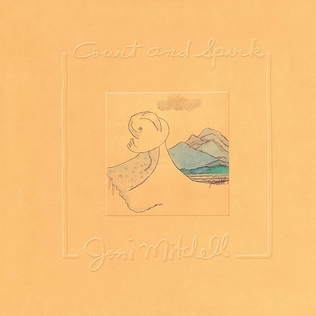
Court and Spark is the sixth studio album by Canadian singer-songwriter Joni Mitchell. It was an immediate commercial and critical success—and remains her most successful album. Released in January 1974, it has been described as pop, but also infuses Mitchell's folk rock style, which she had developed through her previous five albums, with jazz inflections.

Pazz & Jop was an annual poll of top musical releases, compiled by American newspaper The Village Voice and created by music critic Robert Christgau. It published lists of the year's top releases for 1971 and, after Christgau's two-year absence from the Voice, each year from 1974 onward. The polls are tabulated from the submitted year-end top 10 lists of hundreds of music critics. It was named in acknowledgement of the defunct magazine Jazz & Pop, and adopted the ratings system used in that publication's annual critics poll.
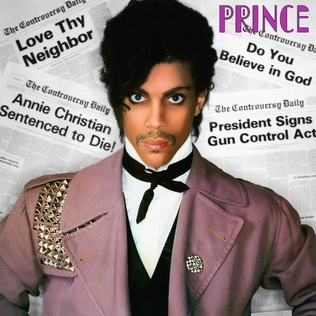
Controversy is the fourth studio album by American recording artist Prince, released on October 14, 1981 by Warner Bros. Records. It was produced by Prince, written by him, and he also performed most of the instruments on its recording. Controversy reached number three on the Billboard R&B Albums chart and was certified Platinum by the Recording Industry Association of America (RIAA). It was voted the eighth best album of the year in the 1981 Pazz & Jop, an annual critics poll run by The Village Voice.

Dub Housing is the second album by American rock band Pere Ubu. Released in 1978 by Chrysalis Records, the album is now regarded as one of their best, described by Trouser Press as "simply one of the most important post-punk recordings."

Graffiti Bridge is the twelfth studio album by American recording artist Prince and is the soundtrack album to the 1990 film of the same name. It was released on August 20, 1990 by Paisley Park Records and Warner Bros. Records.

Parade is the eighth studio album by American recording artist Prince, and the third and final album where the Revolution is billed. It also was the soundtrack album to the 1986 film Under the Cherry Moon, directed by and starring Prince. It was released on March 31, 1986 by Paisley Park Records and Warner Bros. Records.

Dancing in Your Head is a studio album by jazz artist Ornette Coleman, released in 1977 by Horizon Records.
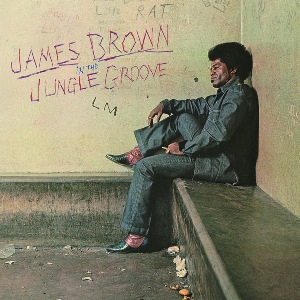
In the Jungle Groove is a compilation album by American funk musician James Brown, released in August 1986 by Polydor Records.
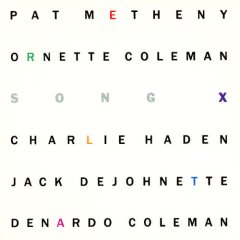
Song X is a collaborative studio album by American jazz guitarist Pat Metheny and saxophonist Ornette Coleman. It is a free jazz record that was produced in a three-day recording session in 1985. The album was released in June 1986 by Geffen Records.
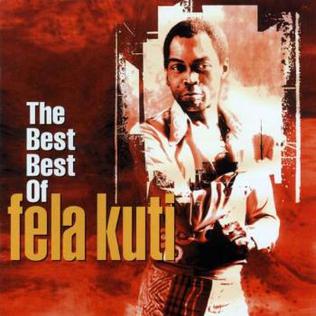
The Best Best of Fela Kuti is a 2-CD compilation album by Nigerian Afrobeat artist Fela Kuti, released in 1999 by MCA Records. It was issued in the United States in 2000 as part of a reissue series of Kuti's albums. The album was reissued as The Best of the Black President in 2009 by Knitting Factory Records and received universal acclaim from music critics. A companion 2-CD compilation, also released in 1999, was reissued in the U.S. in 2013 by Knitting Factory as The Best of the Black President 2.

Fourth World, Vol. 1: Possible Musics is an album by Jon Hassell and Brian Eno. It was recorded at Celestial Sounds in New York City and released in 1980 by Editions EG, an imprint label of E.G. Records. "Fourth world music" is a musical aesthetic described by Hassell as "a unified primitive/futuristic sound combining features of world ethnic styles with advanced electronic techniques." Upon its release, the album received praise from a variety of critics.

The Birth of Soul: The Complete Atlantic Rhythm and Blues Recordings is a 3-CD box set compilation by Ray Charles, released in 1991.

Circle in the Round is a 1979 compilation album by jazz musician Miles Davis. It compiled outtakes from sessions across fifteen years of Davis's career that, with one exception, had been previously unreleased. All of its tracks have since been made available on album reissues and posthumous box sets.

Seasick is the debut studio album by the American indie rock band Imperial Teen, released on May 7, 1996 by Slash Records. The album received generally positive reviews from critics.
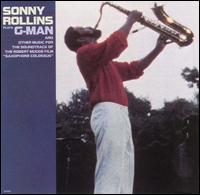
G-Man is a live album by American jazz saxophonist Sonny Rollins. It was recorded at an outdoor concert on August 16, 1986, held at Opus 40 in Saugerties, New York. The concert was filmed for a documentary about Rollins, directed by Robert Mugge, before being released on record in November 1987 by Milestone Records. G-Man received positive reviews from critics, some of whom called it one of Rollins' best albums.

Panthalassa: The Music of Miles Davis 1969–1974 is a remix album by Miles Davis, released on February 16, 1998, by Sony Records. It contains compositions from prior albums, including In a Silent Way (1969), On the Corner (1972), and Get Up With It (1974), remixed by Bill Laswell; it is subtitled "Reconstruction and Mix Translation by Bill Laswell". The album was composed as a dark, continuous tone poem divided by four sections of Davis' jazz fusion recordings. Panthalassa received generally positive reviews from music critics and sold well, charting at number four on the Billboard Top Jazz Albums.

"If I Had No Loot" is a song by American R&B group Tony! Toni! Toné! It was released on June 1, 1993, as the lead single from their 1993 album, Sons of Soul. The song was produced by Tony! Toni! Toné! and co-written by group member Raphael Wiggins, who said that it is about fair-weather friends. It has a new jack swing beat, pronounced guitar licks, and vocal samples from Boogie Down Productions' 1987 song "Remix for P Is Free" and Ice Cube's 1991 song "The Wrong Nigga to Fuck Wit".
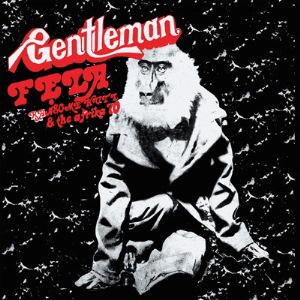
Gentleman is a 1973 studio album by Nigerian Afrobeat musician Fela Kuti. It was written and produced by Kuti and recorded with his Afrika 70 band. The cover artwork's depiction of a monkey's head superimposed on a suited body is a reference to the album's title track, which Kuti composed as a commentary on the colonial mentality of Africans who adhered to European customs and clothing.

Aka/Darbari/Java: Magic Realism is a 1983 album by American trumpet player and composer Jon Hassell, released on the label Editions EG. It was co-produced by Daniel Lanois and features Abdou M'Boup on drums.



![Robert Christgau Writer (1942−[[Category:Errors reported by Module String]]String Module Error: Target string is empty)](https://upload.wikimedia.org/wikipedia/commons/thumb/b/b1/Robert_Christgau_02_%28cropped%29.jpg/256px-Robert_Christgau_02_%28cropped%29.jpg)


















